Panama Canal
Cruise Port schedule, live map, terminals, news
Region
Hawaii - Mexico - Panama Canal
Local Time
2025-01-14 10:28
 84°F
84°F 29°C

 Light breeze
Light breeze2.7 m/s
 90 °F / 33 °C
90 °F / 33 °C 71 °F / 22 °C
Port Panama Canal cruise ship schedule shows timetable calendars of all arrival and departure dates by month. The port's schedule lists all ships (in links) with cruises going to or leaving from Panama Canal. To see the full itineraries (ports of call dates and arrival / departure times) and their lowest rates – just follow the corresponding ship-link.
| Day | Ship | Arrival | Departure |
|---|---|---|---|
| 1 January, 2025 Wednesday | |||
| 3 January, 2025 Friday | 04:00 | 18:00 | |
| 5 January, 2025 Sunday | 04:00 | 18:00 | |
| 5 January, 2025 Sunday | 06:00 | 07:00 | |
| 6 January, 2025 Monday | 06:00 | 15:00 | |
| 8 January, 2025 Wednesday | |||
| 8 January, 2025 Wednesday | 05:00 | 15:00 | |
| 8 January, 2025 Wednesday | 06:00 | 16:00 | |
| 9 January, 2025 Thursday | 06:00 | 06:00 | |
| 10 January, 2025 Friday | 06:00 | 16:00 | |
| 12 January, 2025 Sunday | 05:00 | 19:00 | |
| 13 January, 2025 Monday | |||
| 13 January, 2025 Monday | |||
| 13 January, 2025 Monday | 05:00 | 15:00 | |
| 14 January, 2025 Tuesday | |||
| 15 January, 2025 Wednesday | |||
| 16 January, 2025 Thursday | 05:00 | 17:00 | |
| 17 January, 2025 Friday | |||
| 17 January, 2025 Friday | |||
| 17 January, 2025 Friday | 06:00 | 06:00 | |
| 18 January, 2025 Saturday | 06:00 | 15:00 | |
| 19 January, 2025 Sunday | |||
| 24 January, 2025 Friday | 04:00 | 18:00 | |
| 24 January, 2025 Friday | 04:00 | 18:00 | |
| 25 January, 2025 Saturday | |||
| 25 January, 2025 Saturday | 05:00 | 15:00 | |
| 26 January, 2025 Sunday | 04:00 | 18:00 | |
| 26 January, 2025 Sunday | 04:00 | 18:00 | |
| 26 January, 2025 Sunday | 05:00 | 19:00 | |
| 30 January, 2025 Thursday | |||
| 30 January, 2025 Thursday | 06:00 | 15:00 |
Linking the Atlantic to Pacific oceans, Panama Canal provides one of the most unforgettable ship cruising experiences. More than 10 years were needed to complete the Canal's 51 mi (82 km) in 1914, thus avoiding the lengthy and dangerous navigation around Cape Horn.
The transiting vessels (assisted at the locks by land-based locomotives) pass through artificial lakes and narrow channels blasted through rocks and dense jungle. This is a unique waterway and one of the modern civilization's most astonishing engineering and technological accomplishments.
Panama Canal is a culmination of a dream that began in 1513 with Spanish conquistador Vasco Nunez de Balboa (1475-1519) who was the first European to travel the 43 mi (70 km) wide isthmus. In 1881, the French Panama Canal Company started construction works (at the artificial valley Culebra Cut/aka Gaillard Cut) but due to financial and engineering problems in 1894 sold its rights to the new Compagnie Nouvelle du Canal de Panama, which project was based on locks. The new company also struggled and was forced to sell its rights to the USA (in 1902) for USD 40 million, with a loss of USD 240 million.
The USA officially started construction works in 1904, and the project was completed in 1914 (at a cost of USD 387 million). Currently, the USA still oversees the Canal's operations, though it signed a treaty (in 1979) to transfer the Canal back to Panama (on Dec 31, 1999).
Panamax-sized ships are the bigger vessels that can fit through the Canal's old locks, Such cruise vessels are limited to max LOA length 1050 ft (320 m) and max-width / beam 110 ft (33,5 m). Among the many cruise ship classes designed to allow Panama Canal transition are Millennium-class (Celebrity), Coral-class (Princess) and Signature-class (Holland America). However, all new cruise ships exceed the old locks' limits.
Although many cruise lines already feature Panama Canal transition itineraries (Princess, Celebrity, Holland America, Disney among others), they are restricted to using their smaller ships. The expansion allowed for larger passenger liners to traverse the Canal's 49-mi (79-km) stretch. However, height restrictions remain because of the 1962-built "Bridge of the Americas" (clearance below 61,3 m / 201 ft at high tide) limiting vessels' size. Princess Cruises currently offers canal crossing itineraries on the Island Princess (2214-passenger) and Coral Princess (1970-passenger). The expansion allowed the company to deploy on the canal the larger Caribbean Princess (3080-passenger).
With the new locks now opened and functioning, will the world's largest cruise liners be able to fit through them? The short answer is - no. The new locks, which are in parallel with the old ones, measure 1400 x 180 ft (439x55 m) with draft 60 ft (18 m). However, the max allowed cruise ship dimensions are 1200 x 161 ft (366x49 m) and draft 50 ft (15 m). World's largest passenger ships (RCI's Oasis-class) are indeed within these new lock dimensions, but their height (236 ft / 72 m above waterline) doesn't clear the Bridge of the Americas (spanning over the Canal's Pacific entrance). So unless the bridge is either removed or replaced by a taller one, the Oasis-class ships can't pass through Panama Canal. Cunard's liner RMS Queen Mary 2 (specifically designed to clear the 228 ft / 70 m height of NYC's Verrazano-Narrows Bridge) also joins the list of large ships unable to transit the Canal. Luckily, NCL Norwegian's Breakaway-class ships (Breakaway, Getaway) and the succeeding Breakaway Plus-class (Bliss, Escape, Joy) clear a full transit.
Panama Canal's cruising season runs from October through May. The Canal operates 24 hours a day, 7 days a week, with 35-40 vessels passing through every day. Each transit takes about 8-10 hours.
During season 2016-2017, the number of cruise ship transits was 223.
For season 2017-2018, Panama Canal's schedule had listed a total of 248 passenger ships booked for passing through the Expanded Canal (new Panamax and Neopanamax Locks) with total number of "transiting" cruise tourists 312304. Among the most notable vessels were Caribbean Princess, Carnival Freedom, Carnival Splendor, Norwegian Bliss. The list of cruise lines with ships passing through the new locks included Princess, NCL-Norwegian, CCL-Carnival, Silversea, Viking, Lindblad.
On May 14, 2018, the Alaska-based Norwegian Bliss became the largest passenger ship ever passing through Panama Canal. The liner operated a 15-day transition cruise (itinerary May 10-25) from Miami to Los Angeles, visiting Cartagena, Puntarenas, Puerto Quetzal, Puerto Chiapas, Manzanillo, Puerto Vallarta.
For season 2018-2019 were booked 234 cruise ship transits.
Due to the Coronavirus crisis, for season 2019-2020 were booked just 29 cruise transits, mainly by larger-sized/Neopanamax vessels. Maiden transits were scheduled for Norwegian Dawn, Le Dumont D'urville (Ponant), Ventura (P&O UK), Carnival Glory, Seven Seas Splendor (RSSC-Regent), Scenic Eclipse, Flying Clipper, Hanseatic Inspiration and Hanseatic Nature (Hapag Lloyd), Greg Mortimer (Aurora Expedition).
During season 2022-2023 were conducted 210 transits, including 41 by Neopanamax/large ships. The season featured 12 maiden/first-time transitions by the ships Celebrity Edge, Seabourn Venture, Fridtjof Nansen (Hurtigruten), World Navigator (AOV-Atlas Ocean Voyages), World Voyager (Nicko), Evrima (Ritz-Carlton), Le Bellot (Ponant), Spirit of Adventure (Saga UK), Viking Cruises (Neptune, Octantis, Polaris), Sea Cloud Spirit.
During season 2023-2024, were conducted 201 cruise transits, including 42 by Neopanamax ships.
For season 2024-2025, were booked 227 cruise transits, including 54 by Neopanamax ships.
Annually, the Panama Canal transit 0,9+ million cruise tourists. The main local attractions are the visitor centers at Miraflores Lock and Cocoli Lock, which both have exhibition halls and outdoor observation decks, and also provide guided tours.
Panama Canal alternatives for ship crossings between the Atlantic and Pacific oceans are the Strait of Magellan (between South America and Antarctica) and the Northwest Passage (in the Canadian Arctic territories).
On April 30, 2017, Disney Wonder became the world's first-ever cruise vessel that passed through Panama Canal's new set of locks.
DCL-Disney Cruise Line's ship Wonder was on a 14-night relocation voyage (RepositionCruises.com) from Florida to California. From San Diego, the ship operated several Baja Mexico itineraries before its summer Alaskan season with departures from Vancouver BC Canada. The following table shows this unique itinerary as ports of call (dates, arrival/departure times) and ports sequence.
| Date / Time | Port |
|---|---|
| 23 Apr | Departing from Port Canaveral-Orlando, Florida USA |
| 25 Apr 09:00 - 16:00 | Cozumel, Mexico |
| 28 Apr 06:00 - 14:00 | Cartagena, Colombia |
| 29 Apr | Panama Canal transition |
| 04 May 08:00 - 15:00 | Puerto Vallarta, Mexico |
| 05 May 08:00 - 15:00 | Cabo San Lucas, Mexico |
| 07 May | Arriving in San Diego, California USA |
Cruise liners transiting Panama Canal via the old locks operate full transition voyages through all the 3 sets of old locks (Pedro Miguel, Miraflores, and Gatun/bordering Gatun Lake). Some boats may offer an extra day in Port Fuerte Amador/Panama City.
The first Princess ship with partial transits through the new locks was Caribbean Princess - on 10-day roundtrips from Fort Lauderdale (Port Everglades, Florida). The boat's first-ever transit was on October 26, 2017. The itinerary's call ports were Princess Cays Bahamas, Cartagena Colombia, Panama Canal, Colon Panama, Puerto Limon Costa Rica, and George Town Grand Cayman.
IMPORTANT: Following the waterway's 5th expansion, since June 2021, Panama Canal's new (Neopanamax) locks accommodate vessels with max LOA length 370,33 m (887 ft) and max draft 15,24 m (50 ft). This allows ~96% of the world's containership fleet to be able to transit the waterway.
Panama Canal statistics
On August 22, 2017, the CMA CGM Theodore Roosevelt (2015-built, IMO 9780873) became the largest container vessel transiting the new locks. The boxship has TEU capacity 14855, LOA length 366 m (1200 ft), width 48 m (157 ft). The record was broken on May 15, 2019, by the 15313-TEU boxship Evergreen Triton (2016-built, IMO 9728916 / length 369 m, beam 51 m).
In FY17 (Fiscal Year 2017 / Oct 1, 2016, through Sept 30, 2017), Panama Canal broke all previous annual cargo tonnage records, reporting a traffic volume of 403,8 million tons. This was a 22,2% increase (over 2016) and directly attributed to the Expanded Canal's added capacity of Neopanamax ships. According to FY17 figures, the waterway was transited by a total of 13,548 vessels (+3,3% over FY16). The cargo volume projection for FY17 was 399 million tons. In 2017, the Canal served 29 major containership line services, including 15 Neopanamax shipping services on the trade routes between East Coast USA and Asia. The containership segment is the Canal's leading market (35,3% of all cargoes, or 143 million tons, of which 89,1 million tons were transited through the Expanded Canal). The 2nd segment are the tanker ships (including LPG and LNG carriers, with total 105 million tons. The 3rd and 4th segments are bulk carriers (79 million tons) and vehicle carriers (47 million tons).
In 2017, the main shipping routes through Panama Canal were AsiaEast Coast USA (34%), West Coast South America-East Coast USA (13%), West Coast South America-Europe (7%), West Coast Central America-East Coast USA (7%) and South America intercoastal (5%). In 2017, the Canal was used mainly by vessels leaving from USA (68,3% of the total tonnage), followed by China, Chile, Japan, Mexico and Colombia.
It was estimated, that the Canal's expansion will save around 160 million tons of CO2 emissions during its first 10-year operational period. In 2017, of all transiting vessels, 53% were boxships, 28% LPG tankers, 10% LNG carriers, and the remaining transits were made by bulk cargo and car carriers and cruise ships.
As future projects, the Canal has plans to concession a Ro-Ro terminal (for redistribution of vehicles, machinery and heavy equipment), as well as a huge logistics park (sized 1200 hectares / 12 km2) for the region's logistics services.
On April 28, 2018, the gas carrier LNG Sakura transited the canal with the first-ever LNG shipment from USA to Asia (Dominion Cove Point terminal to Japan). The vessel is owned by Kansai Electric Power (70%) and NYK Line (30%). It has LOA length 300 m and width 49 m. Currently, Panama Canal provides 7x LNG booking slots weekly (average 5,5 transits. For FY2018 was expected 50% increase in LNG shipping over FY2017 (163 to 244 transits).
On August 15, 2018, Panama Canal celebrated its 104 Anniversary (opened 1914). Currently, the artificial waterway connects 144 maritime routes and around 700 ports in 160 countries.
FY2018 was a record year with total tonnage (PCUMS) 442,1 million tons (+9,5% over FY2017's 403,8 million tons). The increase was driven by LPG and LNG carriers (130,3 million tons), boxships (159 million tons), bulk carriers (73,2 million tons), vehicle carriers (49,5 million tons). Most of the traffic was between USA, China, Japan, Mexico, Chile.
On May 14, 2019, the Q-Flex class LNG tanker Al Safliya (Qatargas-owned) became the first-ever large gas carrier to transit the waterway. The vessel has length 315 m, width 50 m and max LNG capacity 210,000 m3. Canal's previous max vessel width/beam was 49 m, now increased (since June 2018) to 51,25 m (168 ft). In 2018, Panama Canal served 340x LNG tanker transits (181 in 2017).
Next video is about the Canal's Post Panamax expansion (a program of projects).
FY2019 was another record year with total tonnage (PCUMS) 469 million tons (+6,2% over FY2018). The increase was again driven by LPG and LNG carriers (+6,9% and +37,6%, respectively), product tankers (+5,6%), vehicle carriers (+5,5%, 53,1 million tons), boxships (164,87 million tons, of which 126,2 million through Neopanamax Locks), bulk carriers (76,5 million tons), chemical tankers (44,3 million tons), LNG carriers (43 million tons), LPG carriers (37,8 million tons), crude product tankers (22,6 million tons), passenger ships (9,9 million tons). Most of the transit shipping traffic was between USA and Asia, Europe and South America, plus US intercoastal routes. The waterway's main customers were from USA, China, Japan, Chile, Mexico.
FY2021 (October 1, 2020 thru September 30, 2021) recorded 516,7 million PCUMS tons (+8,7% over FY20), with total 13342 ship transits. The stats included containerships (184,3M tons / +10,3% / 2602 transits), drybulk carriers (90M tons / +11,2% / 3043 transits), chemical carriers (65M tons / -6,1% / 2596 transits), LNG carriers (61M tons / +31,4% / 537 transits), LPG carriers (52,8M tons / +18,4% / 1523 transits), RoRo/vehicle carriers (47,5 tons / +15,6% / 782 transits). In 2021, the waterway transited a total of 13342 vessels.
Panama Canal cruise ship transition cost (fees)
Following the Panama Canal Authority Board's recommendations, on April 28, 2015, Panama officially approved the proposal to revise the Canal's toll structure.
- By the new structure, each transiting vessel's passage is segmented in different units of measurement:
- LNG carriers (liquefied natural gas) and LGP (gas) tankers' tolls are based on m3 (max capacity).
- Dry bulk carriers' tolls are based on DWT (deadweight tonnage).
- Tankers' tolls are on PC/UMS tons and metric cargo tons.
- Container (boxships) tolls are based on TEU capacity (max containers).
- Cruise vessels' tolls are based on passenger capacity. They are levied based on PC/UMS or pax berths.
- A new segment was created to toll local tour ships.
Cruise ships through Panamax Canal are charged USD 138 per berth. Cruise ships passing through the Canal's new locks (post-Panamax) pay USD 148 per berth. When this decision was made, the new canal locks were 85% complete. The new toll system was implemented on April 1, 2016.
- On May 7, 2008, the boxship MSC Fabienne paid a record highest Panamá Canal transit toll - USD 317,142. Currently, the Canal's average transit cost is USD 54,000 per vessel.
Due to historic low water levels, in January 2020 the waterway's transition fees were increased by adding an additional "Freshwater Charge" - fixed at USD 10,000 for vessels with LOA length 125+ ft (38+ m). Also new is the handling service fee - USD 5,000 (vessels with beam 91+ ft/27,7 m) and USD 1500 (vessels with LOA 125+ ft/38 m).
Panama Canal cruise terminal
A complete Panama Canal transit is comprised of navigation through 3 locksets. Gatun Locks are on the Caribbean side while Pedro Miguel and Miraflores Locks are on the Pacific side. Vessels transiting the Canal are being raised and lowered 26 m / 85 ft in this 3-lock system. Other special highlights of the Canal are the Culebra Cut and Gatun Lake. Gatun Lake is among the largest man-made lakes in the world covering 422 km2 / 163 mi2. Culebra Cut (fka Gaillard Cut) is 13 km / 8 mi long channel built through solid rock that was the most difficult excavation in the Canal's construction.
The new Panama Canal locks were officially inaugurated on June 26, 2016, following the completion of a 9-year (USD 5,25 billion) construction project. Originally scheduled for completion in October 2014, a hundred years after it first opened, the canal's expansion provided an additional lane of shipping traffic through construction of 2 new locks (each with 3 slots), this way doubling the capacity of this unique waterway.
During the new locks' opening, thousands of spectators gathered at Cocolí locks (outside Panama City) to watch the Chinese container ship "Cosco Shipping Panama" with its 9472 TEU containers becoming the ever first ship passing through the new locks.
During the canal's opening ceremony, there was a special guest section with around 3000 people, including delegations from different countries, business associates, heads of different authorities and organizations.
Following the new locks' opening, Egypt's Suez Canal (Panama’s main rival) lowered its transition tariffs to keep its shipping traffic.
- Cruise Industry
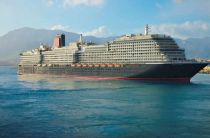
Cunard's ship Queen Anne started first World Cruise from Southampton UK
Cunard Line’s newest ship - MS Queen Anne, commenced her inaugural world cruise. The 112-day voyage (roundtrip from Hamburg Germany) started...
January 9, 2025 - Cruise Industry
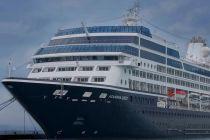
Azamara opens for booking World Cruise 2027 (ship Azamara Quest)
Azamara Cruises opened for booking its World Cruise 2027 scheduled for the Azamara Quest ship. This extensive 188-night voyage offers an...
January 9, 2025 - Cruise Industry
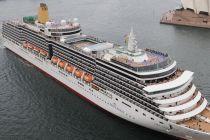
P&O UK’s ship Arcadia starts 99-night World Cruise from Southampton
P&O UK's ship Arcadia departed Southampton on a 99-night world voyage titled "Epic World Explorer" on Friday, January 3rd. The itinerary...
January 4, 2025 - Cruise Industry

MSC announces 2027 World Cruise on Musica
MSC Cruises has opened bookings for its 2027 world cruise aboard the 2,550-passenger MSC Musica. The 121-night voyage spans 5 continents, covering...
December 23, 2024 - Cruise Industry

Windstar introduces wellness-themed cruises in 2025
Windstar Cruises has unveiled its Mind, Body, and Spirit Collection, a series of wellness-themed voyages set to launch in 2025. Catering to...
December 8, 2024 - Cruise Industry
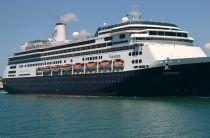
HAL-Holland America unveils revised 2026 Grand World Voyage itinerary aboard ms Volendam
HAL-Holland America Line has announced updates to its 2026 Grand World Voyage on ms Volendam ship. The revised route now visits destinations in East...
November 1, 2024 - Cruise Industry
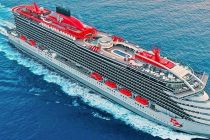
Virgin's ship Brilliant Lady scheduled for Pacific Northwest and Alaska cruises in 2026
Virgin Voyages’ newest vessel - Brilliant Lady, will conclude her inaugural North American season with a selection of 17 new itineraries...
October 30, 2024 - Cruise Industry

MSC starts Alaskan cruises in 2026 with MSC Poesia ship leaving from Seattle WA USA
MSC Cruises will embark on its inaugural Alaska season from May through September 2026. MSC Poesia ship will operate 7-night itineraries from...
October 29, 2024 - Cruise Industry
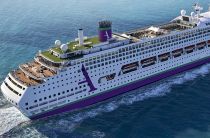
Ambassador Cruise Line UK unveils 2026-2027 itineraries with expanded departures
Ambassador Cruise Line UK has officially launched its 2026-2027 season, offering a range of affordable, no-fly itineraries from March 22nd, 2026, to...
October 23, 2024 - Cruise Industry
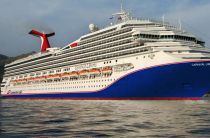
CCL-Carnival expands Caribbean and Mexican Riviera sailings into 2027
CCL-Carnival Cruise Line has announced extended itineraries for Carnival Liberty and Carnival Valor from New Orleans (Port NOLA Louisiana), as well...
October 19, 2024 - show more news
